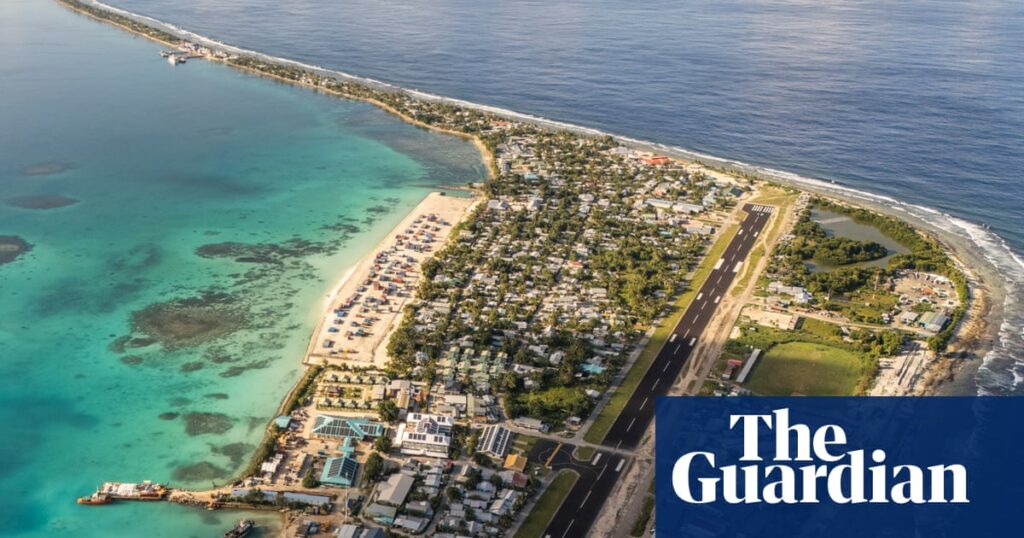
Almost a third of citizens in the Pacific nation of Tuvalu are seeking a landmark visa to relocate to Australia, as rising sea levels threaten their palm-fringed shores. Official figures reveal that more than 3,000 Tuvaluans have entered a ballot for the first batch of these climate-linked visas, which Australia offers under a pioneering migration deal.
Australia is providing 280 visas annually to Tuvalu citizens under what Canberra describes as “the first agreement of its kind anywhere in the world.” This initiative comes as Tuvalu faces existential threats from climate change, with scientists warning that the nation could become uninhabitable within the next 80 years. Two of Tuvalu’s nine coral atolls have already largely disappeared beneath the ocean.
Australia’s Climate Migration Initiative
The groundbreaking Falepili Union, signed in 2024 between Australia and Tuvalu, marks a significant step in addressing climate-forced migration. The agreement is part of Australia’s strategy to counter China’s growing influence in the Pacific region. Under this pact, Australia has introduced a new visa category specifically for adult citizens of Tuvalu.
According to official data, 3,125 Tuvaluans entered the random ballot within just four days of its opening. This overwhelming response indicates that the program may be vastly oversubscribed, highlighting the urgent need for such initiatives.
“This is the first agreement of its kind anywhere in the world, providing a pathway for mobility with dignity as climate impacts worsen,” a spokesperson for Australia’s foreign affairs department stated.
Challenges and Concerns
While the visa program is hailed as a landmark response to climate change, it has also raised concerns about the potential brain drain from Tuvalu. The small island nation, home to 10,643 people according to the 2022 census, could see a significant outflow of skilled professionals and young talent.
John Connell, a geographer at the University of Sydney, cautioned that a long-term exodus of workers could jeopardize Tuvalu’s future. “Small states do not have many jobs and some activities don’t need that many people,” he explained. “Atolls don’t offer much of a future: agriculture is hard, fisheries offer wonderful potential but it doesn’t generate employment.”
Implications of the Falepili Union
The Falepili pact not only facilitates migration but also commits Australia to defend Tuvalu against natural disasters, health pandemics, and military threats. This legal commitment is unprecedented, as noted by Tuvalu’s Prime Minister, Feleti Teo, who emphasized the importance of recognizing Tuvalu’s future statehood and sovereignty despite the challenges posed by climate change-induced sea level rise.
“For the first time, there is a country that has committed legally to come to the aid of Tuvalu, upon request, when Tuvalu encounters a major natural disaster, a health pandemic or military aggression,” Prime Minister Teo stated.
However, the agreement also grants Australia a voice in any defense pacts Tuvalu may sign with other countries, raising concerns about the potential erosion of Tuvaluan sovereignty. Tuvalu remains one of only 12 states that maintain formal diplomatic relations with Taipei instead of Beijing.
Looking Ahead
Australia’s Prime Minister, Anthony Albanese, has expressed his vision for a “peaceful, stable, prosperous and unified region,” underscoring the importance of partnerships like the one with Tuvalu. This initiative not only addresses immediate climate concerns but also strengthens regional ties, offering a model for future climate migration agreements.
As the ballot for the climate-linked visas closes on July 18, the world watches closely to see how this pioneering program unfolds and what it might mean for other climate-vulnerable nations.







